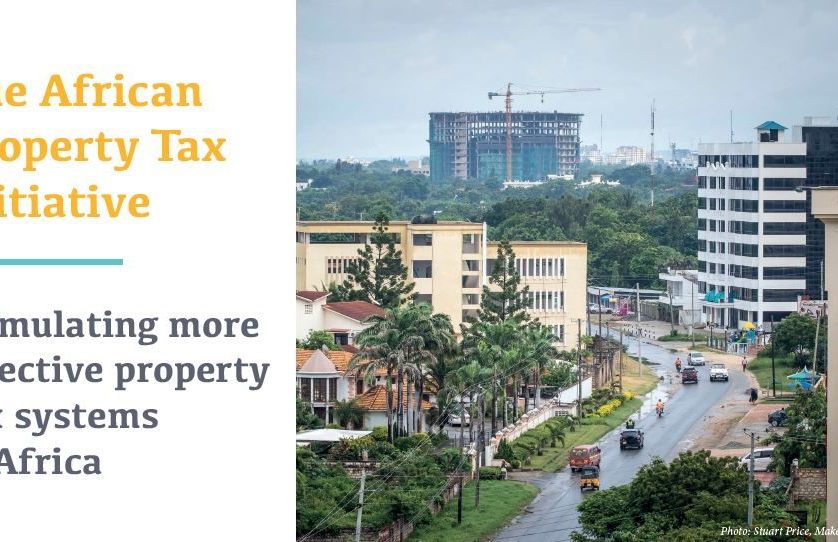Africa is the fastest urbanising continent on the planet. In order to provide citizens with adequate public goods and services and invest in the required infrastructure, African cities need sufficient and sustainable revenues.
Property taxation is equitable, and provides stable funding for local governments. In developed countries, property taxes are the mainstay of local funding. On average, developed countries collect about 2.2% of GDP in property taxes. In developing and transition countries, the average yield is 0.6% of GDP, while in Africa the tally averages a mere 0.38%. With many African cities booming, this represents a significant opportunity: If prosperous African cities could increase the proportion of tax collected, they could do much more to improve the quality of life of their communities.
In spite of this huge potential, many African countries face a number of challenges in increasing property tax revenues. These challenges include: multiple land tenure systems, outdated land record systems and valuation rolls, and the lack of administrative capacity and political will. Likewise, the roles of central and local governments in the property tax gathering chain is not always well defined, valuation methods are often ill adapted, ICT and data management systems virtually nonexistent, and no clear links can be shown between the property tax collected and the quality of services rendered to the taxpaying public.
However, there are reasons to be optimistic: African property markets are becoming more transparent, new technologies like GIS can enable African countries to adopt digitized cadastres and land registries, and several African cities have already made significant progress in reforming their property tax systems.
In this context, and with funding from the Bill and Melinda Gates Foundation, the ICTD has established the African Property Tax Initiative (APTI). APTI is working to improve property tax policies and implementation frameworks in Africa by establishing a well-resourced network of practitioners, policymakers and researchers who can support and learn from each other; and by producing and disseminating rigorous research to inform policy and practice.
The first annual APTI conference, hosted in partnership with the Senegalese Direction Générale des Impôts et des Domaines (DGID), will be on the theme “Stimulating more effective property tax systems in Africa.” Over 60 delegates from 20 countries will participate. The sessions will focus on APTI’s four core themes:
- Strengthening the use of information technology for property tax
- Exploring locally appropriate approaches to valuation,
- Examining the roles of local and central governments in property tax collection, and
- Investigating the link between property taxation and public services in enhancing the relationship between governments and citizens.
APTI’s project leader Dr. Nyah Zebong says, “APTI is already off to a strong start with over 100 network members and seven research projects underway in eight different African countries. The conference is intended to bring researchers and government officials working on property tax issues together to share their insights and experiences, and discuss strategies for fulfilling the potential for property taxation in Africa.”
Follow the discussion on Twitter with #APTItax
See the APTI Conference Programme.
See photos of the conference here.
Watch the video clips from participants here.
See the PowerPoint presentations made at the conference here.
See more video clips here.
